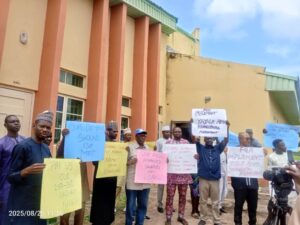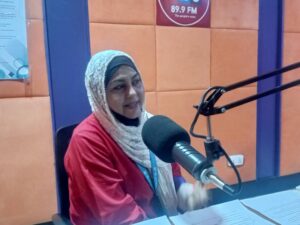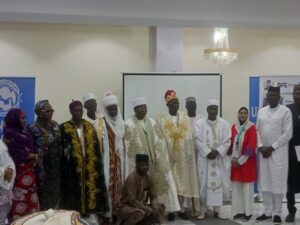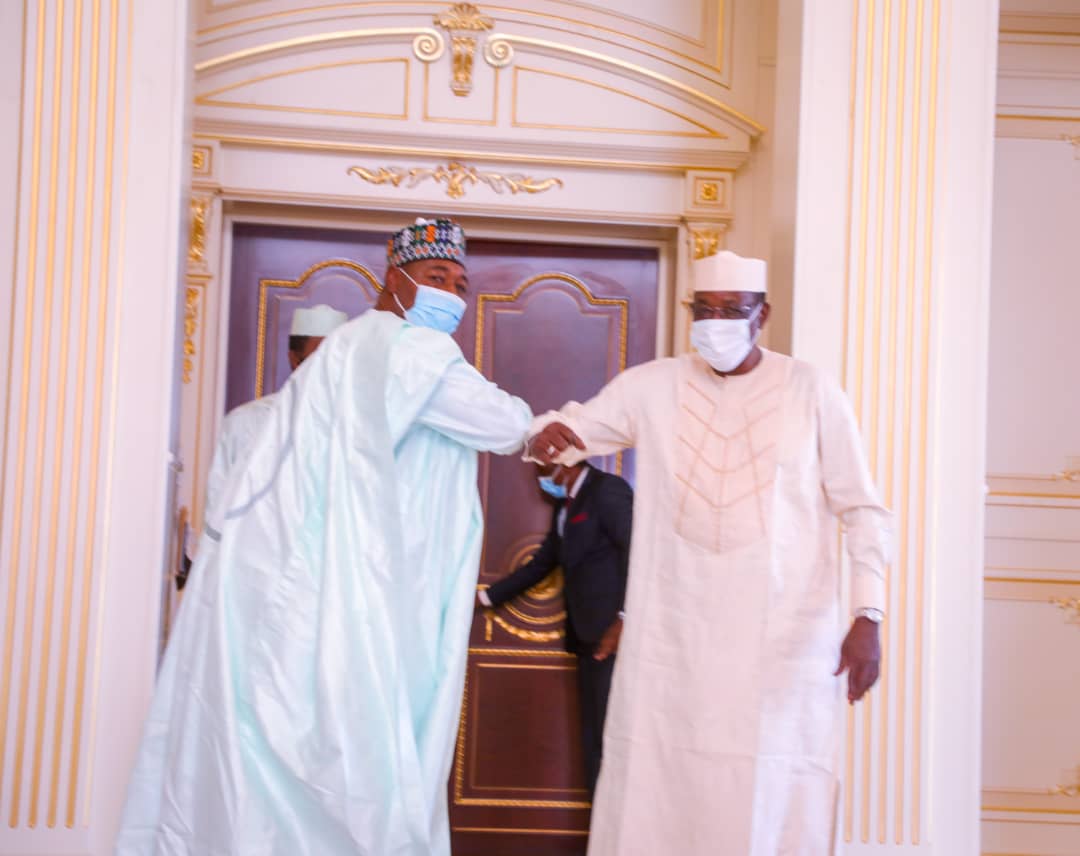
Borno State Governor, Prof. Babagana Umara Zulum, alongside Nigerian ambassador to Chad, Zannah Umar Bukar Kolo, on Wednesday met President Idriss Debby of the republic of Chad over repatriation of thousands of Nigerian refugees, majority from Borno, who in batches, fled killings by Boko Haram since 2014.
The meeting, which held at the presidential palace in N’Djamena, was also attended by Chadian ambassador to Nigeria, Mr Abakar Saleh Chahaimi.
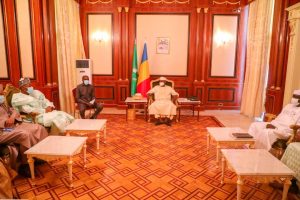
“I am here in Chad to see our people currently taking refuge at The Darsalam camp in Baga Sola. We met them yesterday. Our people are doing very well, the government of Chad is taking care of them. So I am here to express appreciation to the President for his generosity towards our people here in Chad. We have also discussed how we can voluntarily repatriate our people back to Nigeria. Basically we are here for three things: meet our people, thank the government of chad, and intensify collaborative efforts to repatriate those who are willing to be safely resettled in different parts of Borno” Zulum said while briefing journalists after the meeting.
Before today’s meeting with the President, Zulum crossed over the Lake Chad on Tuesday to the refugee camp in Baga Sola, interacted with citizens and supervised distribution of N50 million to 5,000 families as part of social protection. Majority of the families hail from different parts of Kukawa local government in which the commercial town of Baga is located. Other families fled local government areas in northern Borno and some extreme portions of Borno central located around the border with Cameroon through which Chad is accessed by land.

Governor Zulum was in Chad back in January, this year, to meet commanders of the Multinational Joint Task Force over fight against Boko Haram. Zulum has had visited Cameroon and Niger republic at different times to meet Borno citizens taking refuge in the three neighboring countries with land boarders connecting Borno from different angles. During all of these trips, Zulum supervised the distribution of food items and financial support to thousands of refugees and extended gratitude to host communities and government at the local and national levels of the three neighboring countries.
